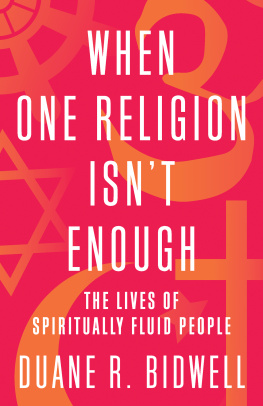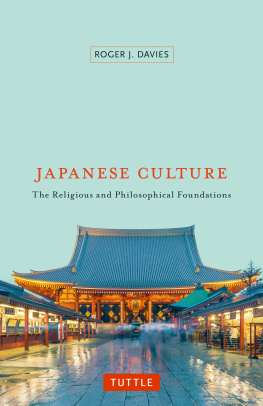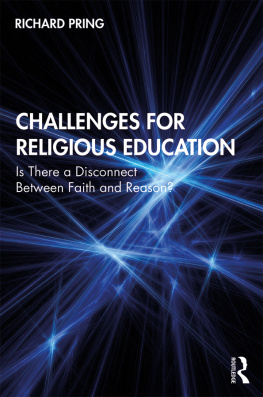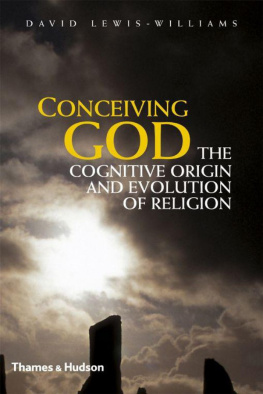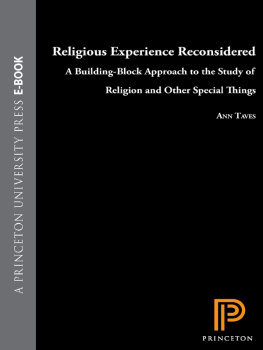Religion in Japanese Daily Life
Are Japanese people religious and, if so, in what ways? David Lewis addresses this question from the perspective of ordinary Japanese people in the context of their life cycles, and explores why they engage in religious activities. He not only discusses how Japanese people engage in different religious practices as they encounter new events in their lives but also analyses the attitudes and motivations behind their behaviour. Activities such as fortune-telling, religious rites in the workplace, ancestral rites and visits to shrines and temples are actually engaged in by many people who view themselves as non-religious but express their motivations in terms other than the conventional religious ones. This book outlines the religious options available, and assesses why people choose particular religious activities at various times in their lives or in specific circumstances. The author challenges some widespread assumptions about religion in urban and industrial contexts and also shows how some of the underlying motivations behind Japanese behaviour are expressed both in religious and non-religious forms.
David C. Lewis is a Visiting Professor in Social Anthropology at Yunnan University, China.
Japan Anthropology Workshop Series
Series editor:
Joy Hendry, Oxford Brookes University
Editorial Board:
Pamela Asquith, University of Alberta
Eyal Ben Ari, Kinneret Academic College, Sea of Galilee
Christoph Brumann, Max Planck Institute for Social Anthropology, Munich
Henry Johnson, Otago University
Hirochika Nakamaki, the Suita City Museum
Kirsten Refsing, University of Copenhagen
Founder Member of the Editorial Board:
Jan van Bremen, University of Leiden
Japans Ainu Minority in Tokyo
Diasporic Indigeneity and Urban Politics
Mark K. Watson
The First European Description of Japan, 1585
A Critical English-Language Edition of Striking Contrasts in the Customs of Europe and Japan by Luis Frois, S.J.
Translated, edited and annotated by Richard K. Danford, Robin D. Gill, and Daniel T. Reff
The Japanese Family
Touch, Intimacy and Feeling
Diana Tahhan
Happiness and the Good Life in Japan
Edited by Wolfram Manzenreiter and Barbara Holthus
Religion in Japanese Daily Life
David C. Lewis
First published 2018
by Routledge
2 Park Square, Milton Park, Abingdon, Oxon OX14 4RN
and by Routledge
711 Third Avenue, New York, NY 10017
Routledge is an imprint of the Taylor & Francis Group, an informa business
2018 David C. Lewis
The right of David C. Lewis to be identified as author of this work has been asserted by him in accordance with sections 77 and 78 of the Copyright, Designs and Patents Act 1988.
All rights reserved. No part of this book may be reprinted or reproduced or utilised in any form or by any electronic, mechanical, or other means, now known or hereafter invented, including photocopying and recording, or in any information storage or retrieval system, without permission in writing from the publishers.
Trademark notice: Product or corporate names may be trademarks or registered trademarks, and are used only for identification and explanation without intent to infringe.
British Library Cataloguing in Publication Data
A catalogue record for this book is available from the British Library
Library of Congress Cataloging in Publication Data
Names: David C. Lewis author.
Title: Religion in Japanese daily life / David C. Lewis.
Description: 1 [edition]. | New York : Routledge, 2017. |
Series: Japan anthropology workshop series | Includes bibliographical references and index.
Identifiers: LCCN 2017024930 | ISBN 9781138677982 (hardback) | ISBN 9781315559193 (ebook)
Subjects: LCSH: JapanReligious life and customs.
Classification: LCC BL2209 .L49 2017 | DDC 200.952/09051dc23
LC record available at https://lccn.loc.gov/2017024930
ISBN: 978-1-138-67798-2 (hbk)
ISBN: 978-1-315-55919-3 (ebk)
Typeset in Times New Roman
by Out of House Publishing
The jungles of Papua New Guinea might seem an unlikely setting for ideas about a book on Japan to emerge. I was there visiting my eldest daughter, who is a medical doctor, and on one of the occasions when I had internet access I received an email from Professor Joy Hendry inviting me to re-activate my membership of the Japan Anthropology Workshop. I had not realized that it had lapsed while I had been living in China and my academic interests had been focused more on Russia, Central Asia, the Middle East and China. However, as I began to think again about Japan the ideas for this book began to take shape. In the process, my experience of living and working in China and elsewhere has broadened my perspective on Japanese culture and its interactions with other parts of Asia.
A second factor stimulating the writing of this book was reading an article by Ian Reader about secularization in Japan, which prompted me to write an article giving a different perspective on that topic (Reader 2012; Lewis 2015). It seemed to me that religion in Japan has so many dimensions to it that it is difficult, if not impossible, to say to what extent it is declining, advancing or even staying the same. Clearly Japanese religious life is changing, but the vectors of change are not necessarily all in the same direction.
If secularization has been taking place, it is a process that needs to be measured at different points in time. It is necessary to have a long-term perspective and even better if that can be based on firsthand experience. I have seen both continuity and change in Japan over the thirty-five years between my first research in Japan in 1981 and my most recent visit in 2016. My earlier data can be used as a benchmark against which to compare other more recent studies, thereby giving a deeper perspective over time.
However, it is not merely a question of statistics. Quantitative data could be compared with the bones that give structure and form to a body but without the flesh and blood it is a lifeless skeleton. The flesh and blood is derived from personal interviews at a local level that show peoples attitudes and motivations in this case, to what extent they actually practise, believe in or experience various aspects of religion. Without the bones, the flesh and blood lack structure, so both the quantitative and the qualitative data are important, as together they provide a more complete picture.
At a national level there are numerous surveys, some of which have asked the same questions over an extended period of time, which do give a good indication of some trends. Questionnaires elicit responses on a predetermined range of standard topics and categorize the answers into boxes: they reveal whether or not people do certain things or profess various beliefs but they do not usually tell us the reasons why people do religious actions or why they believe in something. If it is difficult to categorize the


